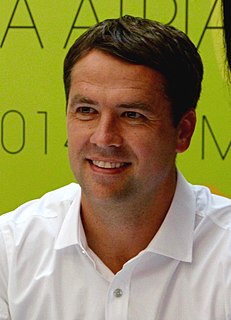A Quote by Christian Wiman
The horrors have made the legend of Mandelstam and are inevitably the lens through which we read his work and life. But if there had been no Stalin and no purge, Mandelstam still would have been a poet of severe emotional and existential extremity.
Related Quotes
I was also writing in a tradition and trying to do something different with it, something that hadn't necessarily been done before, which was a risk, but it made it interesting. My relationship with food has been complicated and rocky and not always wonderful, and it's a lens through which my entire life and identity are refracted.
This time I read the title of the painting: Girl Interrupted at Her Music. Interrupted at her music: as my life had been, interrupted in the music of being seventeen, as her life had been, snatched and fixed on canvas: one moment made to stand still and to stand for all the other moments, whatever they would be or might have been. What life can recover from that?
[Osip] Mandelstam, who wasn't a political thinker, loved the idea of the city-state. One of the emblems in his poetry of the politics he imagined, over and against the universalizing politics of [Carl] Marx, was the medieval city of Novgorod, which had in its center a public well where the water was free to everyone. That became for him a figure of justice.
There are many possible interpretations of what it means to create dangerously, and Albert Camus, like the poet Osip Mandelstam, suggests that it is creating as a revolt against silence, creating when both the creation and the reception, the writing and the reading, are dangerous undertakings, disobedience to a directive.
He was about to go home, about to return to the place where he had had a family. It was in Godric’s Hollow that, but for Voldemort, he would have grown up and spent every school holiday. He could have invited friends to his house. . . . He might even have had brothers and sisters. . . . It would have been his mother who had made his seventeenth birthday cake. The life he had lost had hardly ever seemed so real to him as at this moment, when he knew he was about to see the place where it had been taken from him.
The true poem is not that which the public read. There is always a poem not printed on paper,... in the poet's life. It is what hehas become through his work. Not how is the idea expressed in stone, or on canvas or paper, is the question, but how far it has obtained form and expression in the life of the artist. His true work will not stand in any prince's gallery.

































